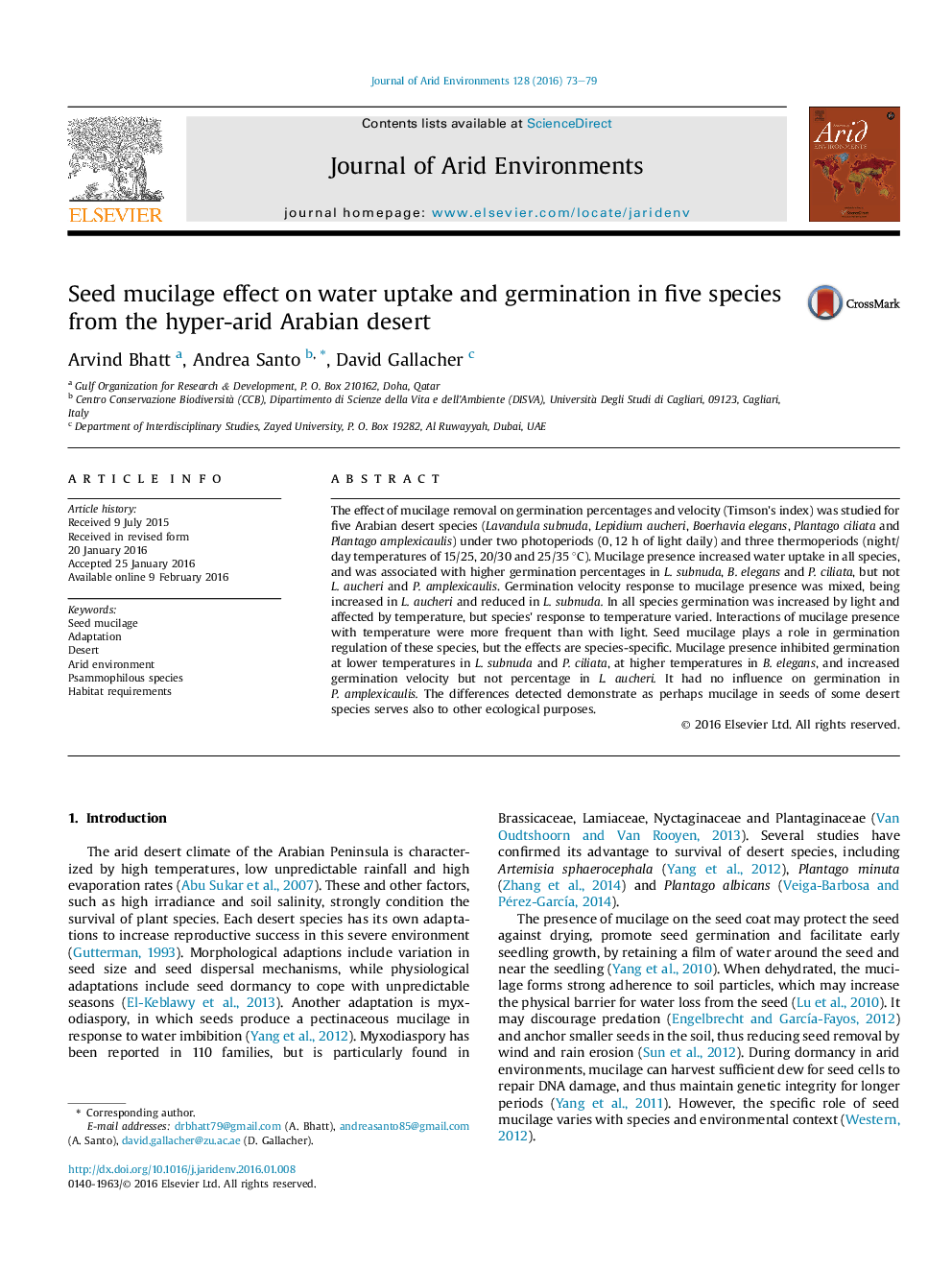| Article ID | Journal | Published Year | Pages | File Type |
|---|---|---|---|---|
| 4392770 | Journal of Arid Environments | 2016 | 7 Pages |
•The effect of mucilage removal on germination percentage and velocity was analysed.•Water uptake was significantly higher in mucilaginous seeds.•Mucilage plays a role in regulating seed germination.•The germination effects of mucilage are species-specific.
The effect of mucilage removal on germination percentages and velocity (Timson's index) was studied for five Arabian desert species (Lavandula subnuda, Lepidium aucheri, Boerhavia elegans, Plantago ciliata and Plantago amplexicaulis) under two photoperiods (0, 12 h of light daily) and three thermoperiods (night/day temperatures of 15/25, 20/30 and 25/35 °C). Mucilage presence increased water uptake in all species, and was associated with higher germination percentages in L. subnuda, B. elegans and P. ciliata, but not L. aucheri and P. amplexicaulis. Germination velocity response to mucilage presence was mixed, being increased in L. aucheri and reduced in L. subnuda. In all species germination was increased by light and affected by temperature, but species' response to temperature varied. Interactions of mucilage presence with temperature were more frequent than with light. Seed mucilage plays a role in germination regulation of these species, but the effects are species-specific. Mucilage presence inhibited germination at lower temperatures in L. subnuda and P. ciliata, at higher temperatures in B. elegans, and increased germination velocity but not percentage in L. aucheri. It had no influence on germination in P. amplexicaulis. The differences detected demonstrate as perhaps mucilage in seeds of some desert species serves also to other ecological purposes.
